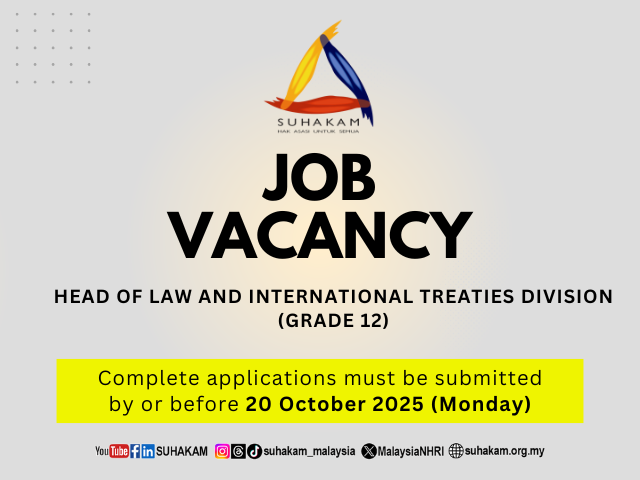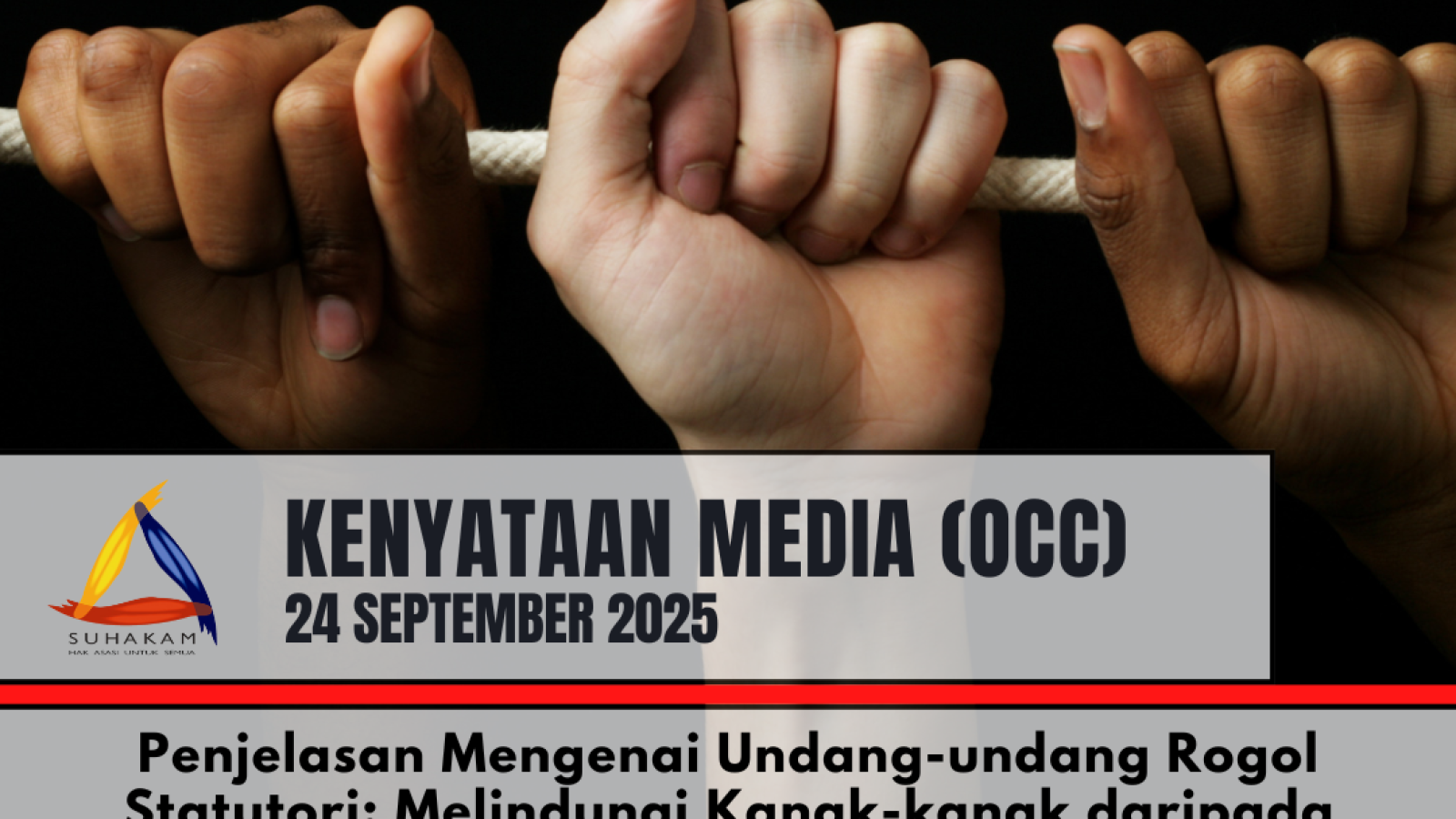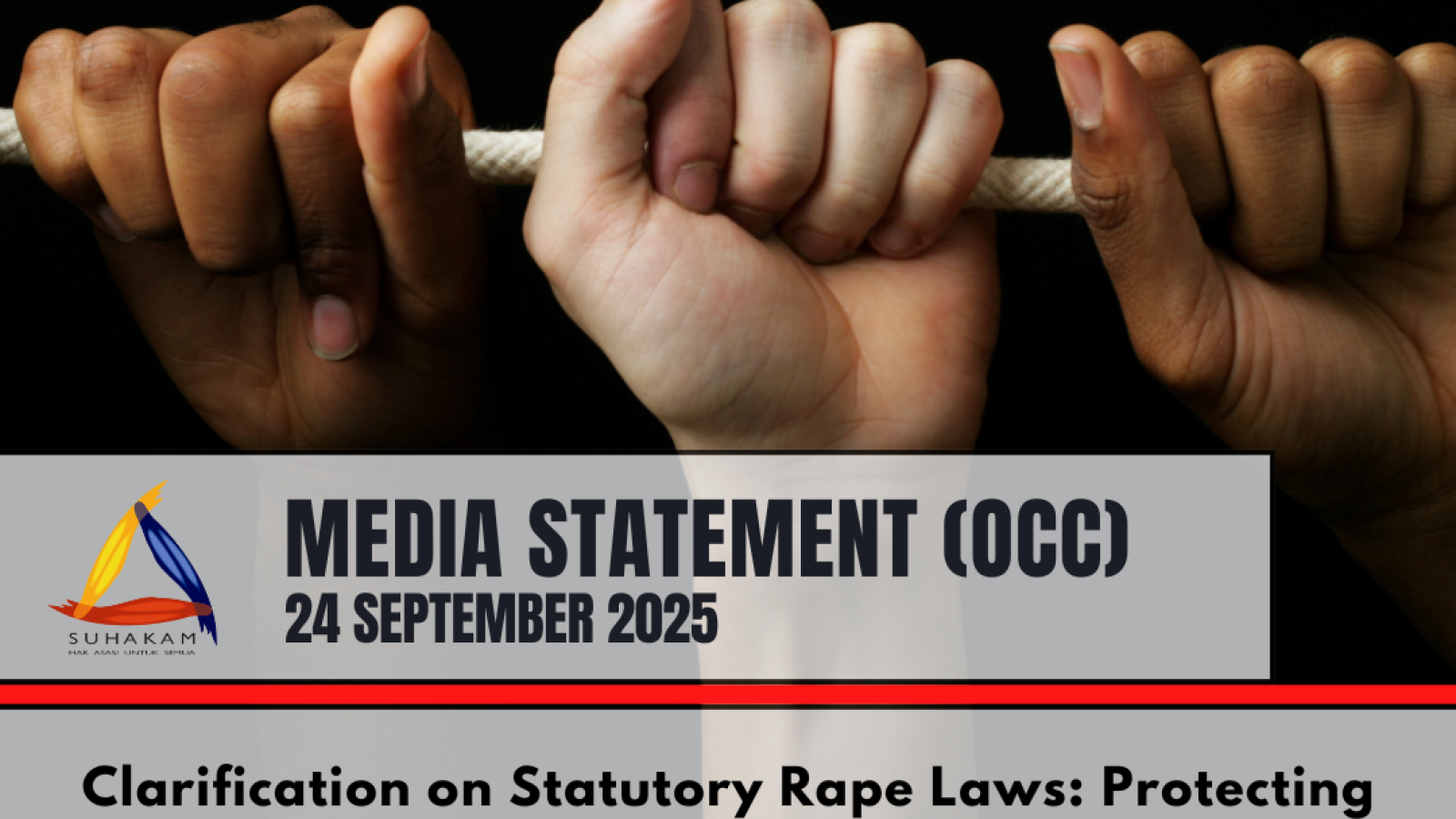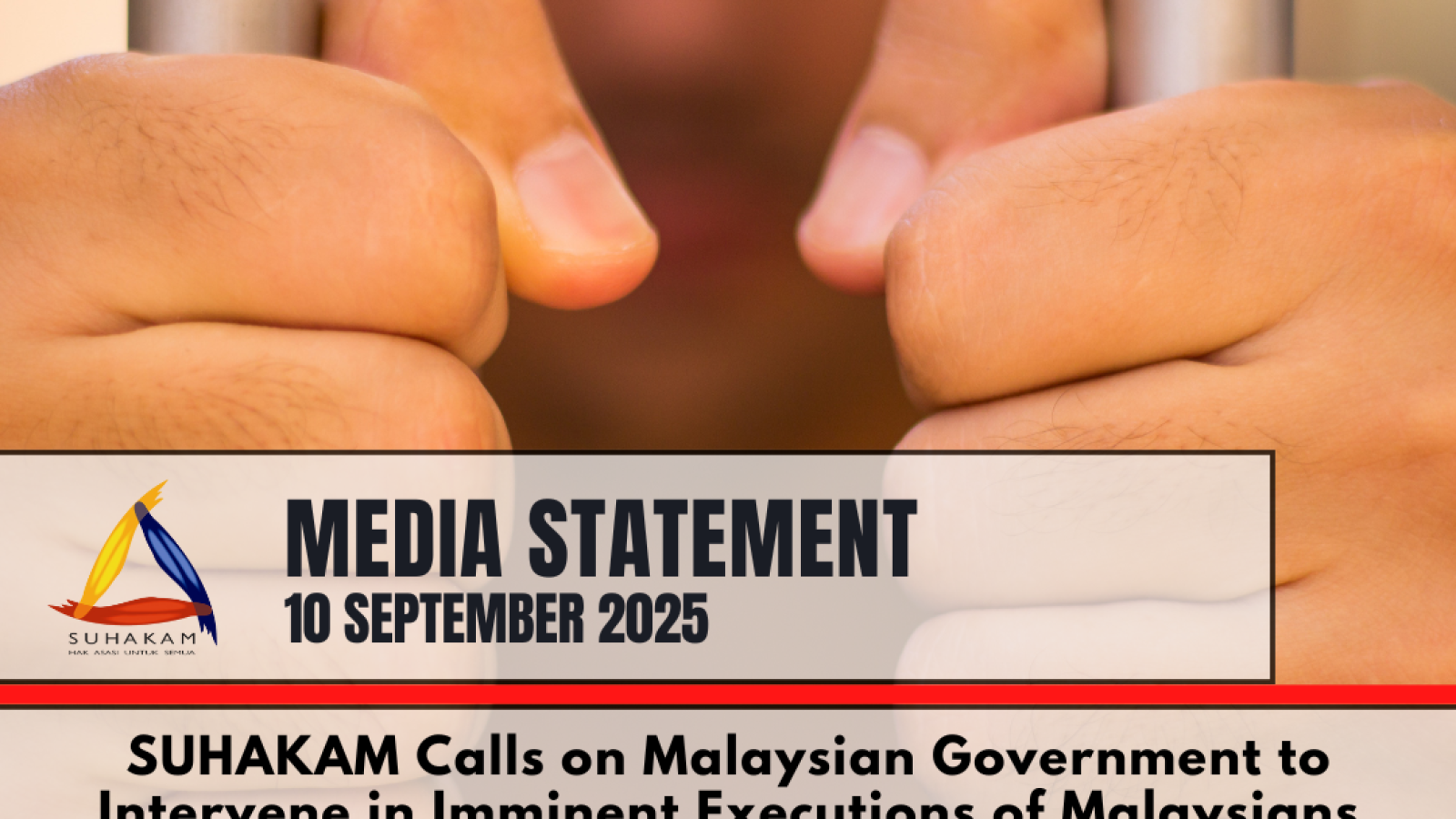KUALA LUMPUR (3 OKTOBER 2025) – Pejabat Pesuruhjaya Kanak-kanak (OCC), SUHAKAM menggesa Kerajaan Malaysia agar memastikan Belanjawan 2026 mengambil pendekatan berorientasikan kanak-kanak, di mana peruntukan disalurkan khusus kepada kelangsungan hidup, perlindungan, pembangunan, dan penyertaan kanak-kanak. Selaras dengan obligasi Malaysia di bawah Konvensyen Mengenai Hak Kanak-kanak (UNCRC), belanjawan negara mestilah menyediakan pelaburan konkrit bagi menjamin hak kanak-kanak dan masa depan negara.
Komitmen yang kukuh diperlukan untuk memperkukuh inisiatif Sekolah Selamat. Ini termasuk peruntukan yang mencukupi bagi membaik pulih dan menaik taraf kemudahan sekolah serta alatan pembelajaran yang usang, memastikan sekolah di seluruh negara mencapai piawaian keselamatan, dan membiayai usaha advokasi anti-buli. Sekolah juga mesti menyediakan persekitaran yang selamat untuk kesejahteraan mental dan emosi. Belanjawan 2026 wajar memperluaskan pelaburan dalam perkhidmatan kesihatan mental kanak-kanak dengan menambah bilangan kaunselor dan psikologi di kawasan berkeperluan tinggi, menyediakan talian bantuan kesihatan mental yang mudah dicapai oleh golongan muda, serta membangunkan program kesedaran kepada ibu bapa, guru, dan murid bagi mengurangkan stigma serta membina budaya prihatin.
Perlindungan kanak-kanak daripada keganasan, penderaan, eksploitasi, dan amalan berbahaya juga perlu menjadi keutamaan belanjawan. Lebih banyak sumber diperlukan untuk pegawai perlindungan kanak-kanak, pekerja sosial, rumah perlindungan, serta program pencegahan yang menangani keganasan terhadap kanak-kanak. Turut sama penting ialah memperkukuh perkhidmatan dan sumber bagi perlindungan kanak-kanak untuk perlaksanaan sepenuhnya Akta Kanak-kanak 2001 (Akta 611), yang telah lama tertangguh. Tanpa peruntukan yang mencukupi, kanak-kanak akan terus terdedah kepada pelbagai bentuk bahaya dan kemudaratan yang menjejaskan hak dan maruah mereka.
Keperluan mendesak yang lain ialah menamatkan kemiskinan kanak-kanak dan menyokong keluarga yang kurang berkemampuan. Kemiskinan terus memberi kesan buruk terhadap pendidikan, kesihatan, dan menjejaskan peluang masa depan kanak-kanak. Belanjawan 2026 seharusnya memperkukuh perlindungan sosial untuk kanak-kanak dengan meningkatkan bantuan kewangan kepada keluarga berpendapatan rendah dan memperluaskan akses kepada makanan berkhasiat di sekolah untuk murid yang memerlukan.
Kesihatan dan pemakanan kanak-kanak juga menuntut pelaburan yang lebih besar. Belanjawan 2026 wajar memperkukuh program pemakanan untuk kanak-kanak kecil, menyokong perkhidmatan kesihatan berasaskan sekolah, dan memperluaskan fasiliti penjagaan kesihatan primer di kawasan yang kurang mendapat liputan. Usaha menangani masalah kekurangan zat makanan dan obesiti, bersama dengan langkah pencegahan kesihatan, akan membantu Malaysia melahirkan generasi yang lebih sihat dan berdaya saing untuk mencapai potensi penuh mereka.
Kesimpulannya, OCC menegaskan bahawa Belanjawan 2026 adalah peluang penting bagi Malaysia untuk menunjukkan komitmen yang tulen terhadap hak kanak-kanak. Setiap ringgit yang diperuntukkan untuk kanak-kanak adalah pelaburan dalam membina Malaysia yang lebih kukuh, selamat, dan berdaya tahan. Pelaburan terhadap kanak-kanak mesti menjadi keutamaan tertinggi negara.
-TAMAT-
Pejabat Pesuruhjaya Kanak-Kanak (OCC)
Suruhanjaya Hak Asasi Manusia Malaysia (SUHAKAM)
Tarikh: 3 Oktober 2025











